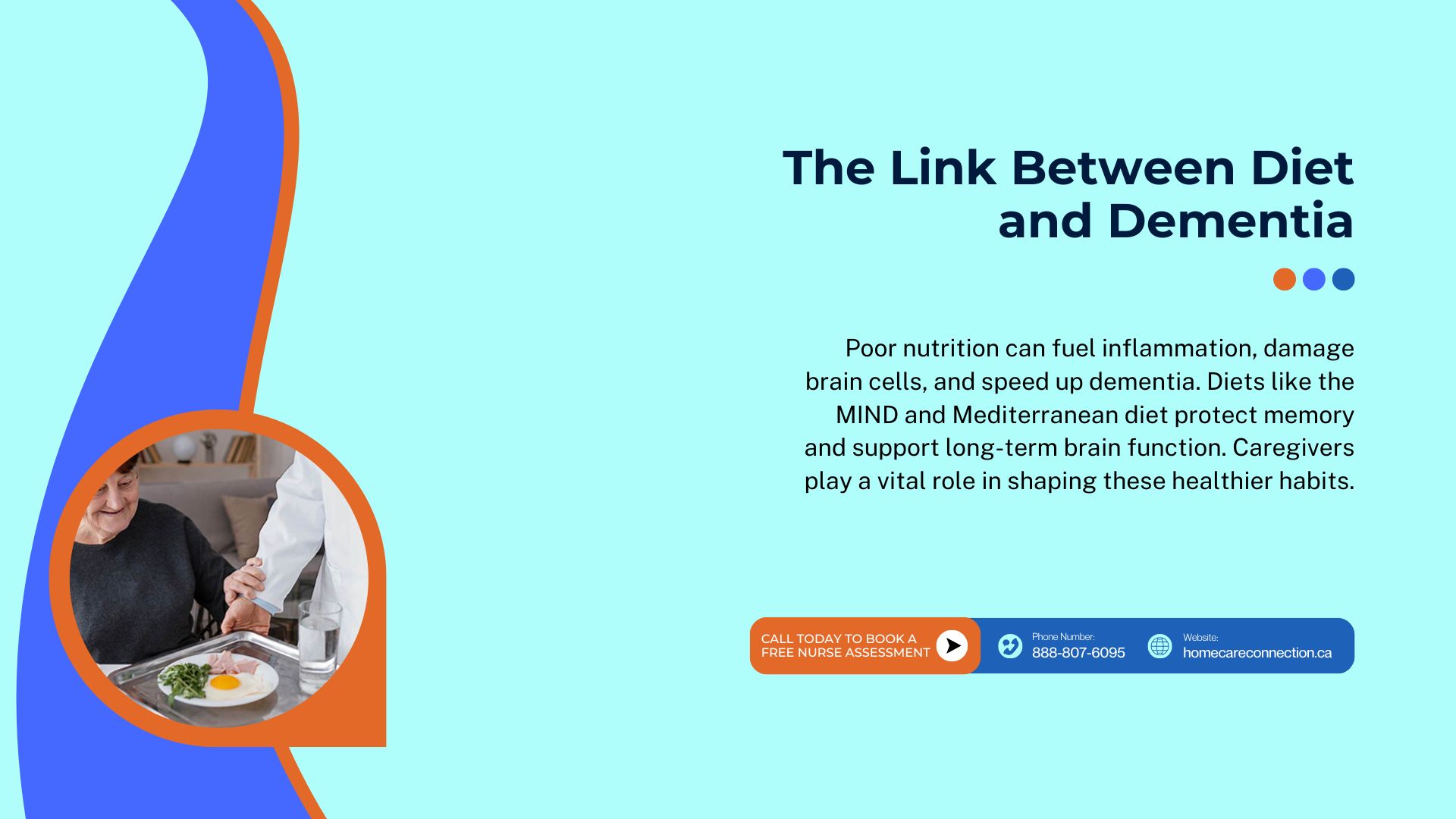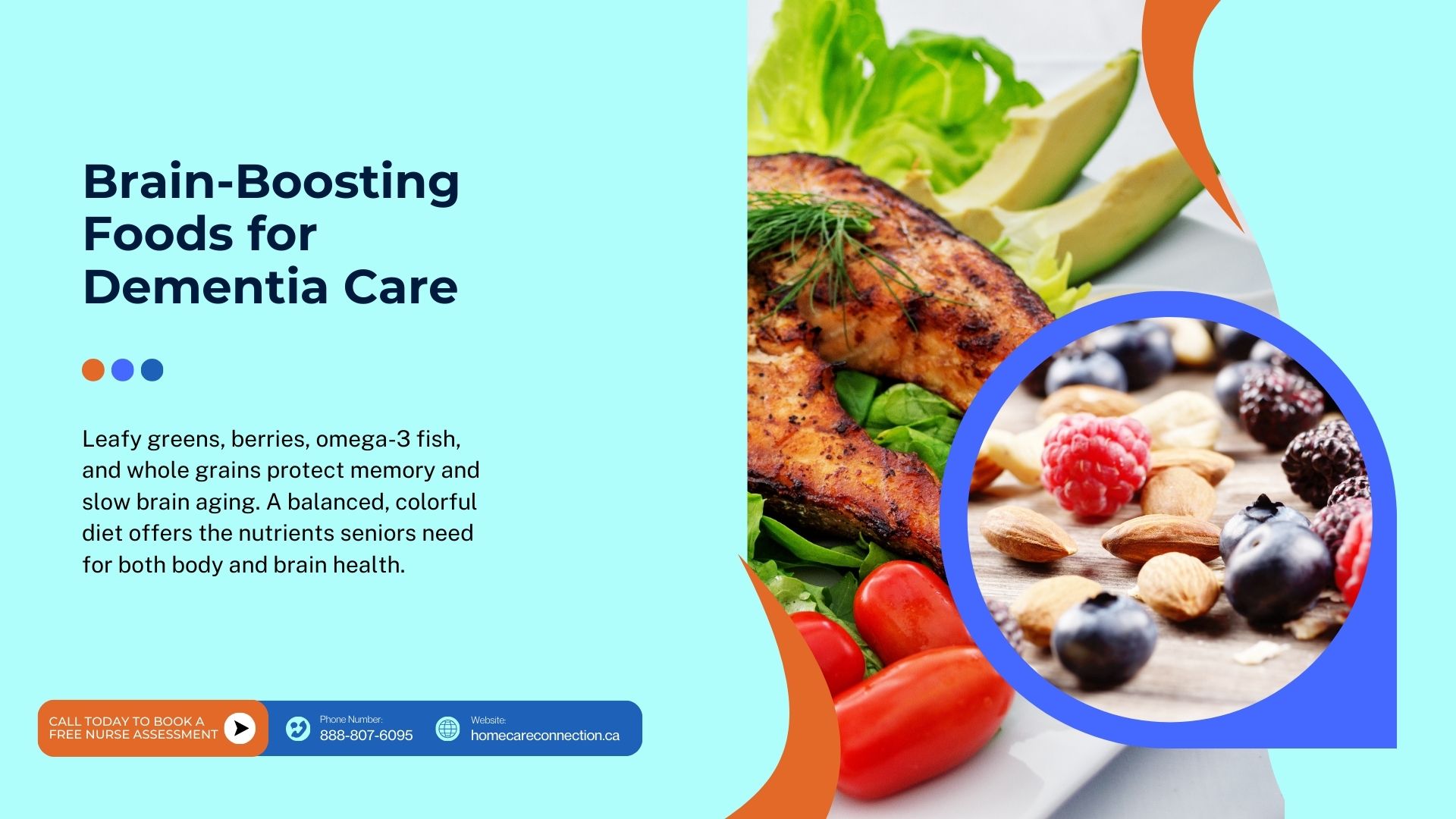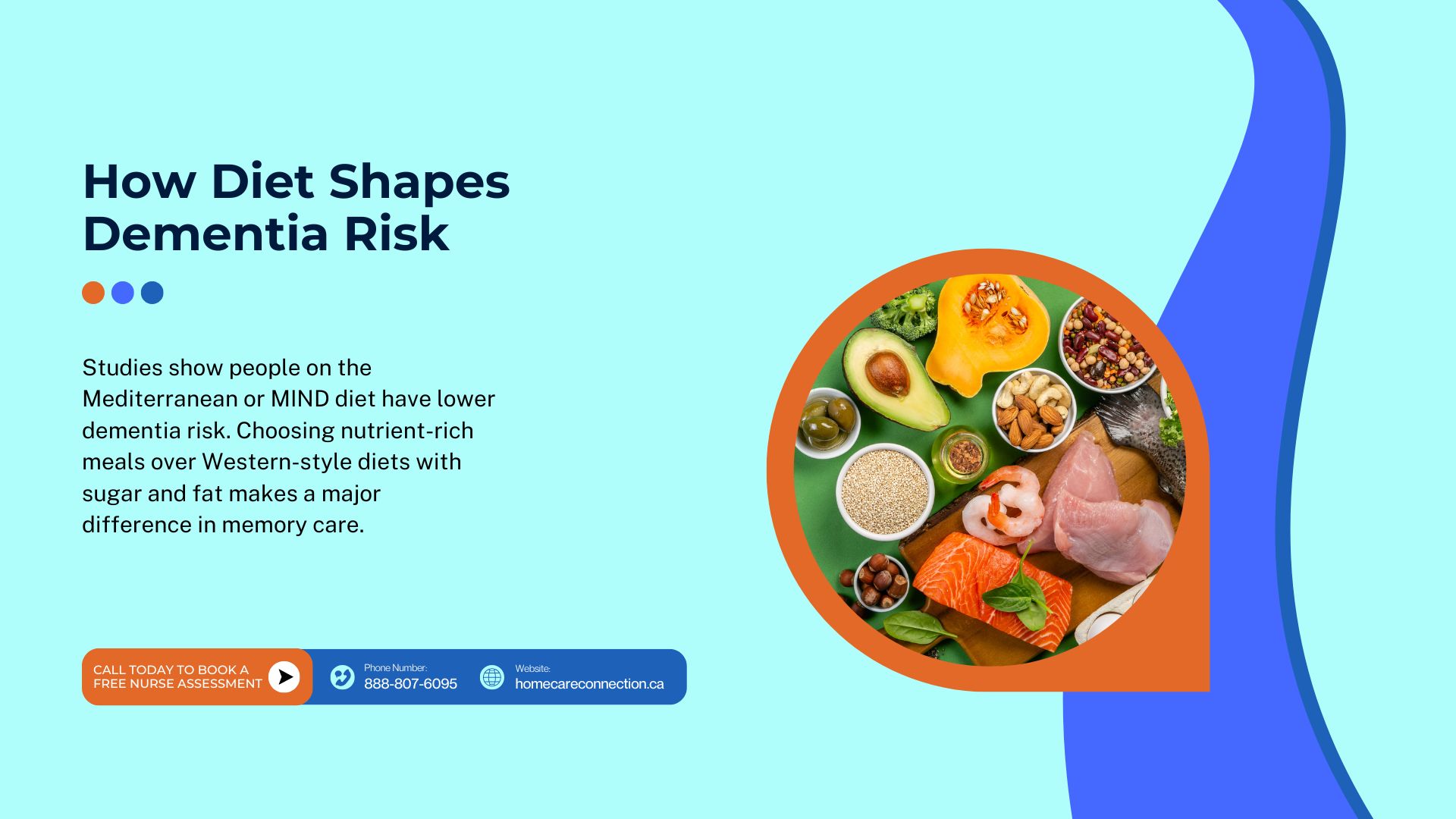Dementia Foods to Avoid: How Diet Impacts Alzheimer’s and Memory Care
What we eat plays a major role in brain health. A poor diet can raise dementia risk, worsen memory loss, and speed up cognitive decline. On the other hand, healthy food choices may help prevent dementia and protect against Alzheimer’s disease.
Knowing which dementia foods to avoid allows families and caregivers to make better decisions for loved ones. By limiting processed foods, sugars, and harmful fats, and embracing healthier options, we can support memory, brain function, and overall well-being.
Why Nutrition Matters in Dementia Care

Research has shown a clear connection between diet and dementia. Poor nutrition can fuel inflammation, damage brain cells, and increase the risk of developing dementia. In contrast, diets like the MIND diet and Mediterranean diet are associated with a reduced risk of dementia and slower brain aging.
Caregivers play a vital role by planning meals that are simple, nutrient-rich, and enjoyable. Companion care during meals can also encourage better eating habits and prevent isolation.
Dementia Foods to Avoid for Better Brain Health
Certain foods are linked to cognitive decline and dementia. Cutting back on these options may reduce dementia risk and improve overall brain health.
Processed Foods and Trans Fats
Packaged snacks, fried foods, and ready-made meals often contain trans fats that inflame the brain. Several studies link high trans fat intake to memory decline and Alzheimer’s disease.
Sugary Foods and Refined Carbohydrates
Excess sugar and refined carbs cause insulin resistance, which harms memory and learning. Replacing soda, candy, and white bread with fruit and whole grains supports brain function.
High-Sodium Foods
Canned soups, processed meats, and salty snacks raise blood pressure, which increases the risk of vascular dementia. Choosing fresh, low-sodium options protects both heart and brain health.
Red and Processed Meats
Regular consumption of bacon, sausages, and deli meats is associated with an increased risk of dementia. Opting for fish, poultry, or plant proteins may help prevent or slow decline.
Excessive Alcohol
Heavy drinking damages brain cells and accelerates dementia progression. Moderate intake or healthier alternatives like herbal teas can protect cognitive function.
Foods That Support Dementia Prevention

While some foods harm the brain, others may help prevent dementia and improve memory.
Leafy Greens and Vegetables
Green leafy vegetables like spinach and kale are packed with antioxidants and folate, which support learning and memory. Eating a variety of colorful vegetables also slows brain aging.
Omega-3 Rich Fish and Healthy Fats
Salmon, mackerel, and foods with omega-3 fatty acids reduce inflammation and protect memory. Adding walnuts, flaxseeds, and olive oil can further boost brain health.
Whole Grains and Fibre-Rich Foods
Brown rice, oats, and quinoa stabilize blood sugar levels, fueling steady energy for the brain. These foods are linked to a lower risk of dementia in older adults.
Berries and Antioxidant-Rich Fruits
Blueberries, strawberries, and other fruits provide antioxidants that protect against oxidative stress. Regular intake may reduce your risk of Alzheimer’s disease and support long-term memory.
The Impact of Diet on Dementia Risk

Recent studies suggest that people who followed a Mediterranean diet or MIND diet had a lower risk of dementia compared to those with a Western-style diet high in sugar and saturated fat. A healthy diet not only prevents cardiovascular disease but may also help prevent or delay cognitive decline.
Nutrition is not a cure, but it’s a powerful intervention for neurodegenerative delay. By prioritizing a diet rich in fruits, vegetables, whole grains, and healthy fats, families can support brain health and improve daily life for seniors.
Best Practices for Dementia Nutrition
- Choose anti-inflammatory diets: The Mediterranean-style diet and MIND diet were associated with slower cognitive decline.
- Add brain-boosting foods: Leafy greens, fish, berries, and whole grains improve memory and learning.
- Simplify meals: Easy-to-digest, home-prepared meals help seniors eat better.
- Involve caregivers: Companionship during mealtime encourages healthy eating habits.
Conclusion
Diet comes first when it comes to supporting brain health. While some foods increase the risk of dementia, others may help prevent dementia and promote longer-lasting memory. By avoiding ultra-processed foods and focusing on nutrient-dense meals, families can reduce dementia risk and improve the quality of life for loved ones.
Small, consistent choices like adding olive oil instead of butter, or swapping sugary drinks for water or green tea may reduce the risk of developing dementia and Alzheimer’s disease. A thoughtful diet, paired with caregiver support, can make a real difference in protecting brain health for older adults.
Frequently Asked Questions
What is the number one food that prevents dementia?
No single food prevents dementia, but green leafy vegetables like spinach, kale, and collards stand out. Research shows they protect memory and slow brain aging.
What is the one food to avoid for dementia?
Processed foods high in sugar and trans fats are strongly linked to cognitive decline. They fuel inflammation and increase dementia risk.
What drink lowers dementia risk by 25%?
Studies suggested that moderate coffee and green tea intake may lower dementia risk by about 25%. Both are rich in antioxidants that protect brain health.
What vitamin slashes dementia risk?
Vitamin D supports brain function and may lower dementia risk. Other helpful vitamins include B12, folate, and vitamin E.






